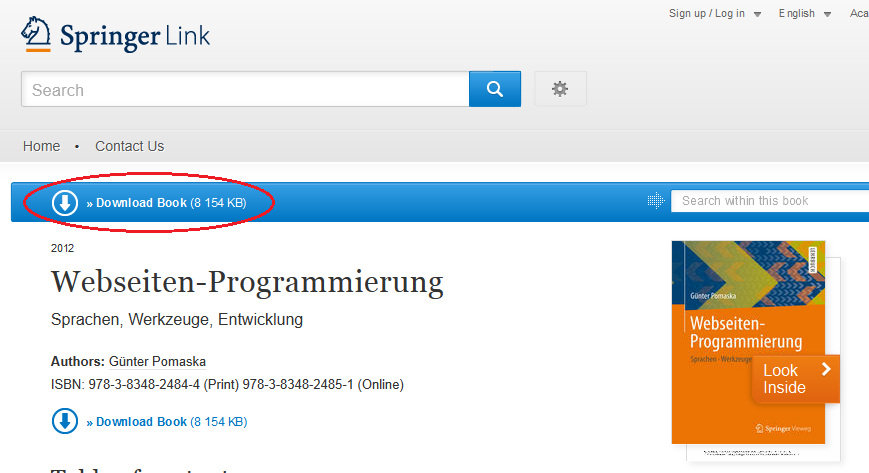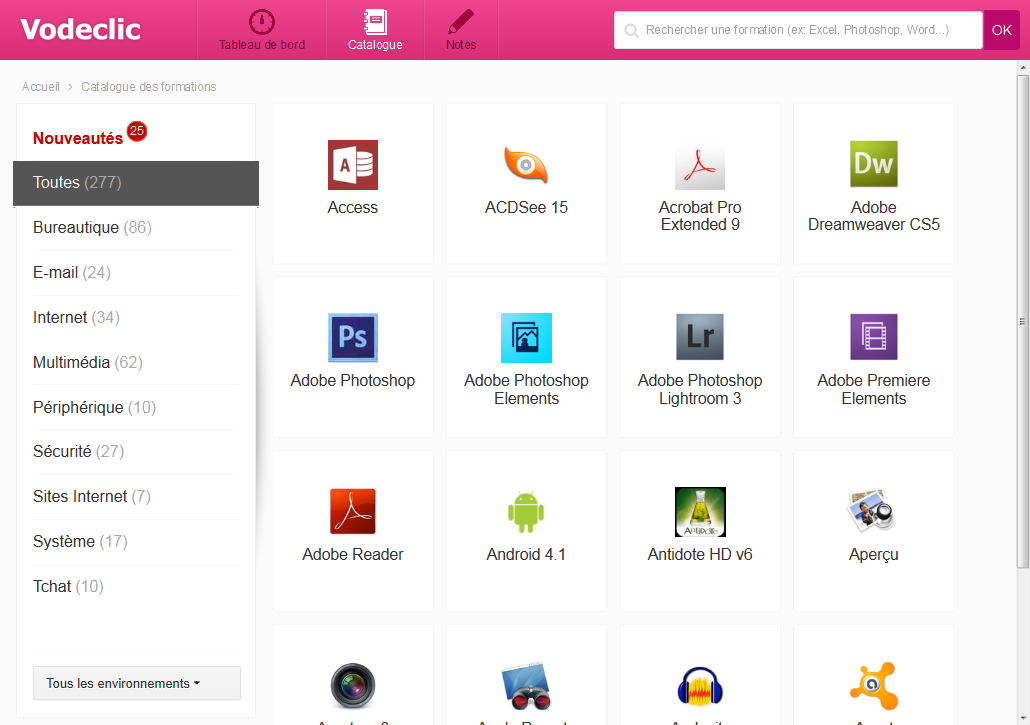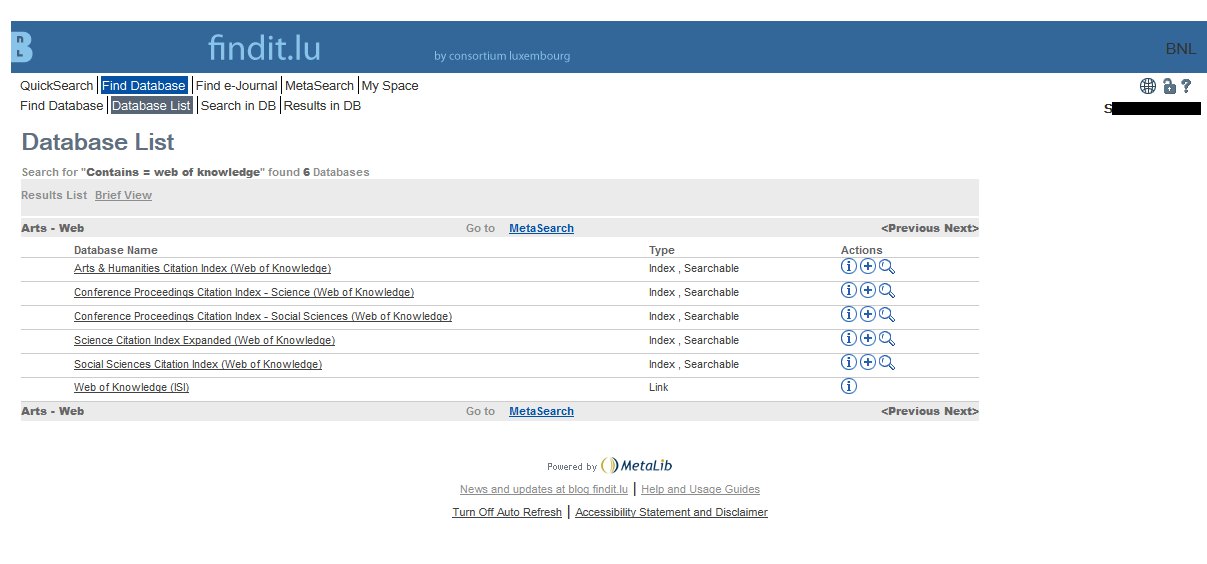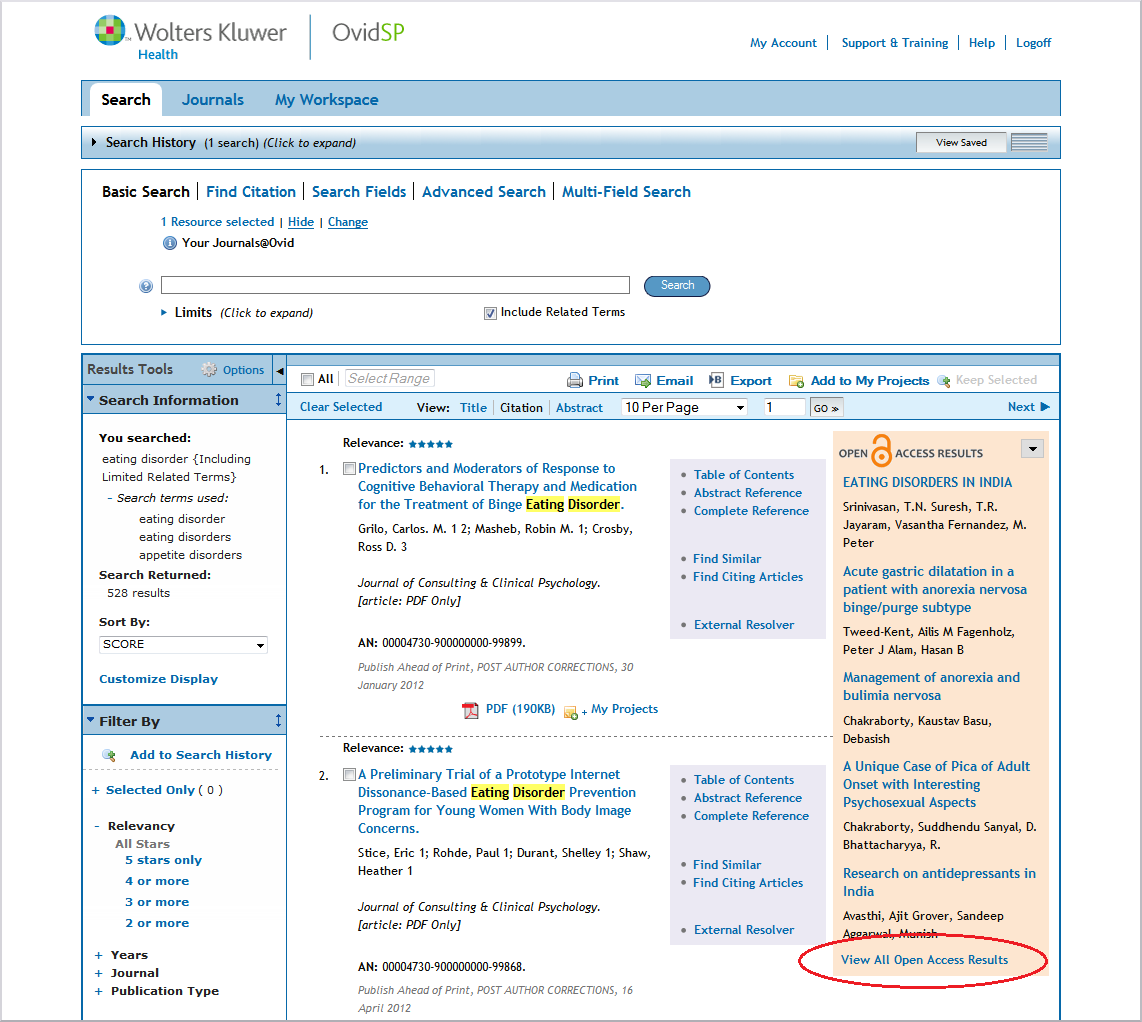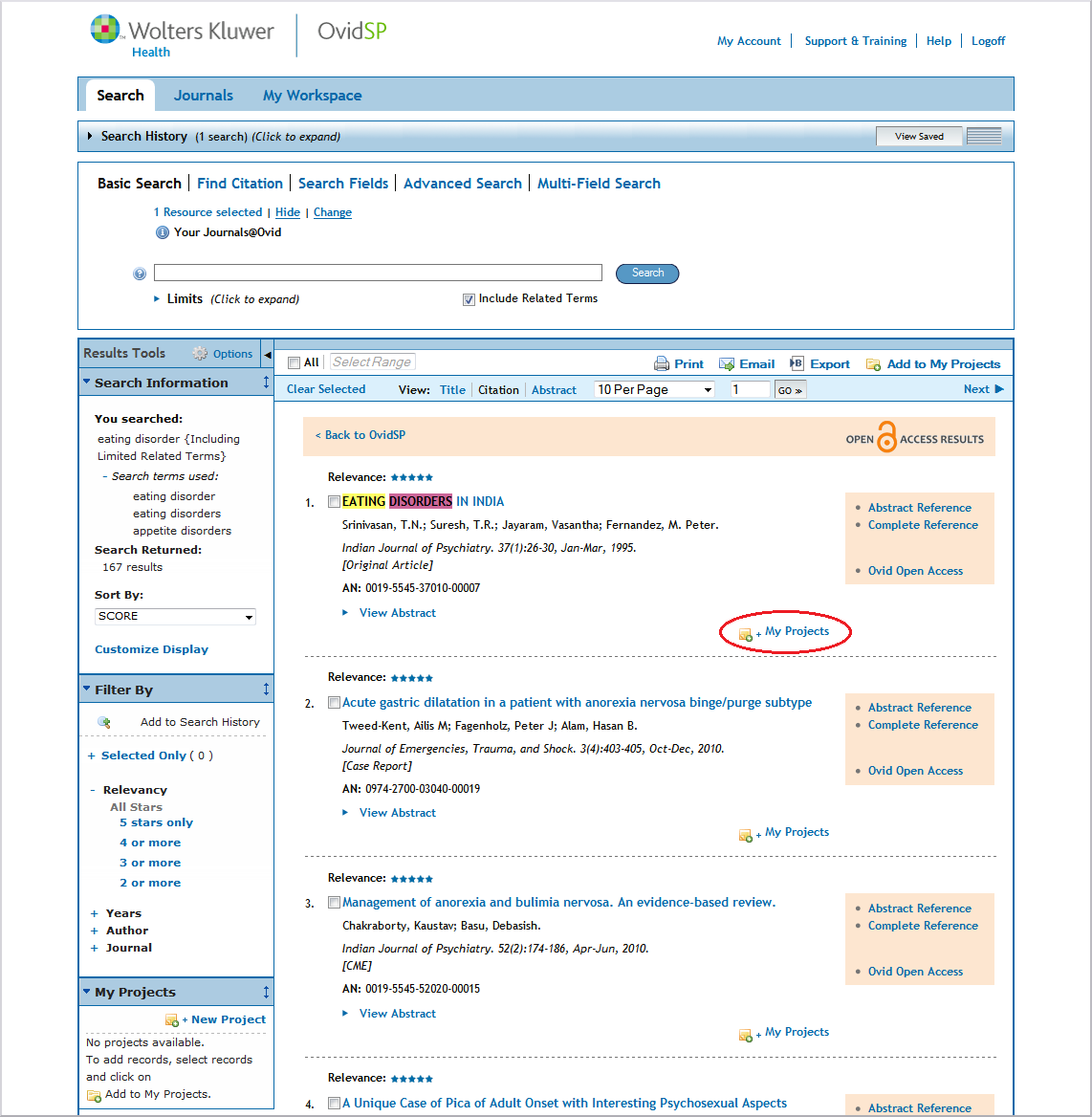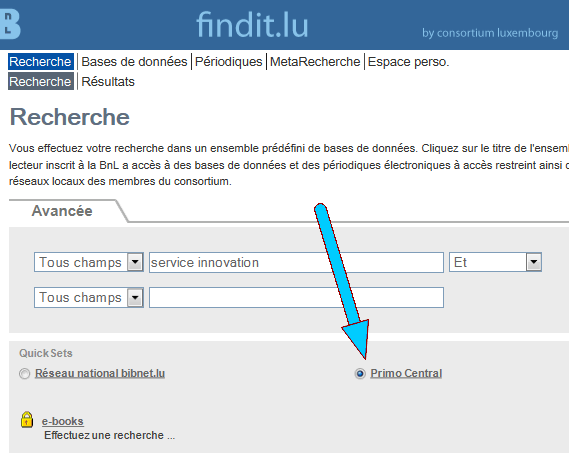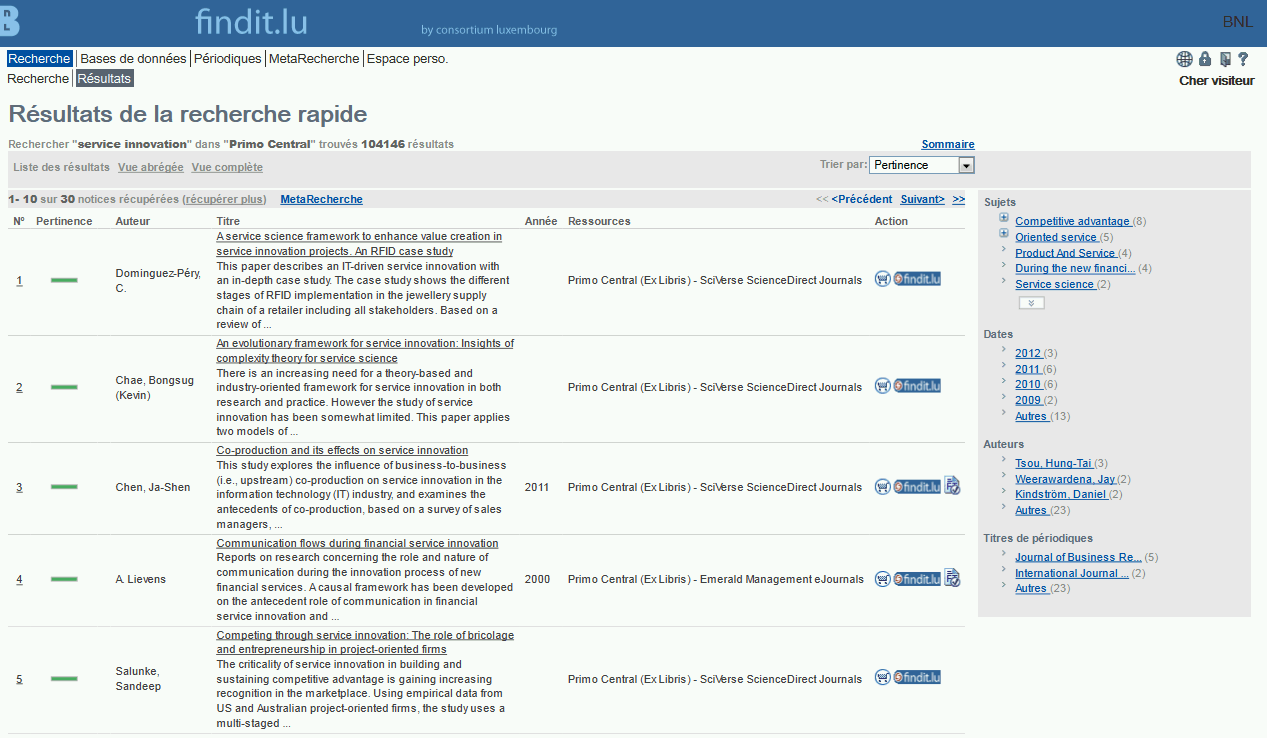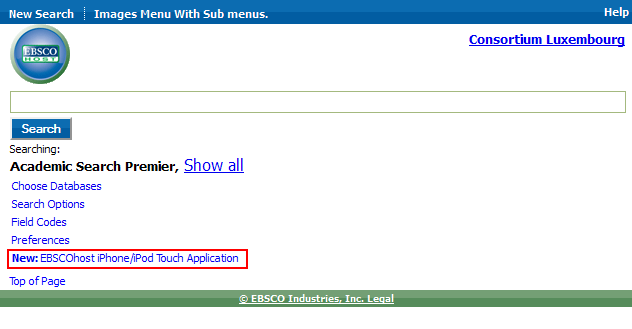 Dans le cadre de sa stratégie de développement des services en ligne pour promouvoir la société de la connaissance dans toutes les couches de la population, la Bibliothèque nationale de Luxembourg (BnL) a lancé lundi 6 mai un outil de recherche nouvelle génération. Ce nouveau moteur de recherche, accessible via le portail www.a-z.lu , permet désormais aux internautes de découvrir facilement, à partir d’un seul point d’accès,
Dans le cadre de sa stratégie de développement des services en ligne pour promouvoir la société de la connaissance dans toutes les couches de la population, la Bibliothèque nationale de Luxembourg (BnL) a lancé lundi 6 mai un outil de recherche nouvelle génération. Ce nouveau moteur de recherche, accessible via le portail www.a-z.lu , permet désormais aux internautes de découvrir facilement, à partir d’un seul point d’accès,
- les collections (livres, revues, films, …) des quarante bibliothèques du réseau bibnet.lu,
- les contenus numérisés par la BnL dans le cadre de son projet eluxemburgensia,
- une grande partie des publications de la bibliothèque numérique findit.lu du Consortium Luxembourg pour la gestion et l’acquisition de publications électroniques, financées par la Bibliothèque nationale, l’Université et les trois centres de recherche publics, Gabriel Lippmann, Henri Tudor et Santé.
a-z.lu permet ainsi de rendre plus visible l’importante offre documentaire, sous forme imprimée ou numérique, à disposition au Luxembourg. En effet, a-z.lu regroupe environ 1.2 millions de notices bibliographiques issues du catalogue collectif bibnet.lu et plus de 2 millions d’articles de presse numérisés d’eluxemburgensia, accessibles en texte intégral. Les usagers inscrits à la Bibliothèque nationale et à la Bibliothèque de l’Université ont accès à de multiples bases de données, ebooks et articles scientifiques de findit.lu. a-z.lu permet en outre de découvrir les archives littéraires du Centre national de littérature.
Afin d’orienter rapidement vers l’information recherchée, tout en évitant une surcharge d’informations, a-z.lu offre un masque de recherche qui permet à l’internaute de lancer facilement sa requête et d’avoir quasi instantanément une première liste de résultats qu’il peut affiner ensuite grâce à un système de filtres adaptatifs. Ainsi chaque usager peut d’une part visualiser en quelques instants l’offre de sa bibliothèque préférée ou bien avoir une vue d’ensemble de la totalité de l’offre documentaire à sa disposition dans les bibliothèques du Grand-duché.
a-z.lu permet aux personnes détentrices d’une carte de lecteur des bibliothèques du réseau bibnet.lu de réserver en ligne des documents imprimés ou audiovisuels de leur choix.
La BnL a cherché à développer un outil qui soit à la fois intuitif et puissant et qui, outre la rapidité de la recherche, offre encore une présentation claire et contextuelle des résultats ainsi que des accès directs aux documents en ligne. L’objectif primordial était d’implémenter un outil qui réponde aussi bien aux besoins classiques des habitués des bibliothèques qu’aux exigences plus pointues des chercheurs de l’Université et des centres de recherche publics.
a-z.lu a pour objectif d’inciter le public non encore familiarisé avec l’offre des bibliothèques, en particulier les jeunes, adeptes de l’Internet et des fonctionnalités web 2.0, à découvrir leurs collections et profiter au mieux des services proposés.
Afin de réaliser ce but, a-z.lu a été implémenté en collaboration avec les bibliothèques du réseau bibnet.lu, dont fut issue un groupe de travail contribuant à formuler les besoins des différents types d’usagers.
La BnL implémentera dans un 2e temps une version d’a-z.lu, adaptée à l’accès par équipements mobiles.
Le développement de a-z.lu se situe dans le cadre des missions nationales de la BnL en sa qualité de coordinatrice du réseau des bibliothèques luxembourgeoises et du Consortium Luxembourg dont elle gère les systèmes informatiques et outils connexes. Le réseau bibnet.lu compte actuellement une quarantaine de membres de tous types, dont les bibliothèques des instituts culturels de l’Etat, la bibliothèque de l’Université, les bibliothèques de divers organismes publics ainsi que de nombreuses bibliothèques municipales et de lycées.
Le projet a-z.lu a bénéficié de l’appui constant de la ministre de la Culture Octavie Modert. Il est à situer dans la même lignée que le guichet.lu et le portail culture.lu et est partie intégrante de l’action de la ministre de la Culture et de la ministre de la Fonction publique en faveur de la modernisation et de la simplification des services au public («Service um Bierger») par le recours aux technologies innovantes du numérique et de l’Internet.
a-z.lu
a-z.lu : L’outil de recherche nouvelle génération (présentation)
a-z.lu : L’outil de recherche nouvelle génération (dépliant)

